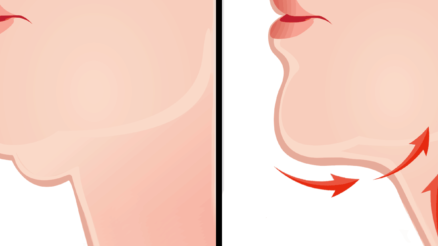Headaches, which can range from minor discomfort to severe pain, can have a substantial influence on both activities of daily living and productivity. Although taking medicine can provide some comfort in the short term, making some adjustments to one’s lifestyle can go a long way toward preventing headaches once and for all.
Here are six specific changes that you may apply to your lifestyle to improve your health, minimize the frequency of headaches, and lessen their severity.
1. Prioritize Hydration
One of the most prevalent causes of headaches is severe dehydration. Keeping your body at the ideal level of hydration throughout the day is of the utmost importance. Carry a water bottle that can be easily refilled with you and make it a goal to consume at least eight glasses of water every day. It is important to pay attention to the amount of fluids you ingest, particularly in hot or dry conditions, while engaging in physical activity or if you consume caffeine or alcohol, as these chemicals have the potential to cause dehydration in the body.
2. Maintain a Regular Sleep Schedule
Anxiety might be brought on by insufficient slumber. It is crucial to have a consistent sleep regimen to guarantee that you will get quality slumber. The ideal amount of sleep for a night is between seven and eight hours, and you can make it a point to go to bed and wake up at the same time every day. To send a message to your body that it is time to wind down and get ready for bed, you can establish a nighttime routine that is calming. Some examples of what might fall into this category are reading a book, soaking in a hot bath, or meditating or deep breathing exercises.
3. Manage Stress Effectively
Many people experience headaches as a direct result of stress, which is a big factor. Stretching, prayer, meditation, progressive muscle relaxation, and spending time in nature are all examples of activities that can be included in your daily routine to have the desired effect of relieving stress. Identify the sources of stress in your life and devise methods to deal with them effectively.
4. Maintain a Balanced Diet
Headaches can be avoided largely by paying attention to what you eat. Maintaining a food diary allows you to keep track of your consumption and identify potential triggers, such as drinks containing coffee or alcohol, processed foods, artificial additives, or foods that are rich in sugar and sodium. As an alternative, you can concentrate on consuming a diet that is well-balanced and abundant in fruits, vegetables, whole grains, lean proteins, and healthy fats to supply your body with the necessary nutrients and maintain stable blood sugar levels.
5. Learn About the Type of Headache You Have
Learning what type of headache you have can be crucial in effectively preventing future occurrences. One tool that can aid in this process is a headache symptom checker. By using this tool, individuals can input or choose their symptoms and receive a possible diagnosis based on common headache types. This information can then be used to develop a personalized prevention plan. For example, if a person frequently experiences tension headaches, they may benefit from stress reduction techniques such as relaxation exercises or therapy.
6. Maintain Proper Posture
Incorrect posture can be a contributing factor in the development of tension headaches, which are caused by muscle tension and pressure in the neck. Maintain a level of awareness regarding your posture throughout the day, regardless of whether you are standing, sitting, or engaging in physical activity. Make sure that your feet are planted firmly on the ground and that you are sitting up straight. If you are sitting or standing for extended amounts of time, you can provide yourself with regular breaks to stretch and shift postures.
Conclusion
Adopting these lifestyle adjustments has the potential to significantly prevent headaches and promote general health and well-being. However, if you continue to encounter severe or frequent headaches despite making these adjustments, you must seek the advice of a healthcare professional for additional evaluation and treatment.





